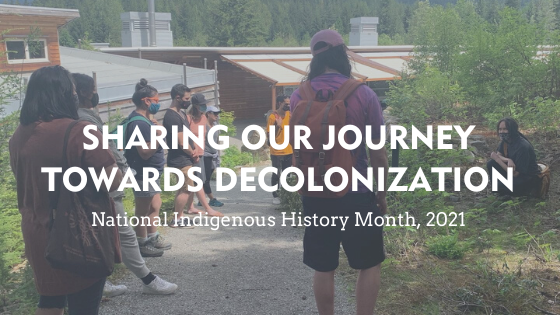
As National Indigenous History Month draws to a close, we’re reflecting on an incredibly challenging month for our Indigenous participants, staff, and community members. In the last few weeks, more than 1000 unmarked graves have been found on the sites of former Residential Schools. Indigenous communities believe there are many more yet to be discovered.
These discoveries have centered conversations about truth and reconciliation once again. We must all reckon with the truth of what was done to children in Residential Schools, and what it means for our communities and our country. We must also reckon with the other ways the government has been committing genocide against Indigenous People in what we now call Canada.
For nearly 150 years, the Canadian government has been deliberately seeking to destroy Indigenous communities, cultures, and languages through policy and action. The last Residential School closed in 1996, and their terrible legacy lives on in the trauma experienced by Indigenous people across the country. Further, government policy continues to discriminate against Indigenous people and cause further trauma and injustice.
Zero Ceiling’s Journey Towards Decolonization
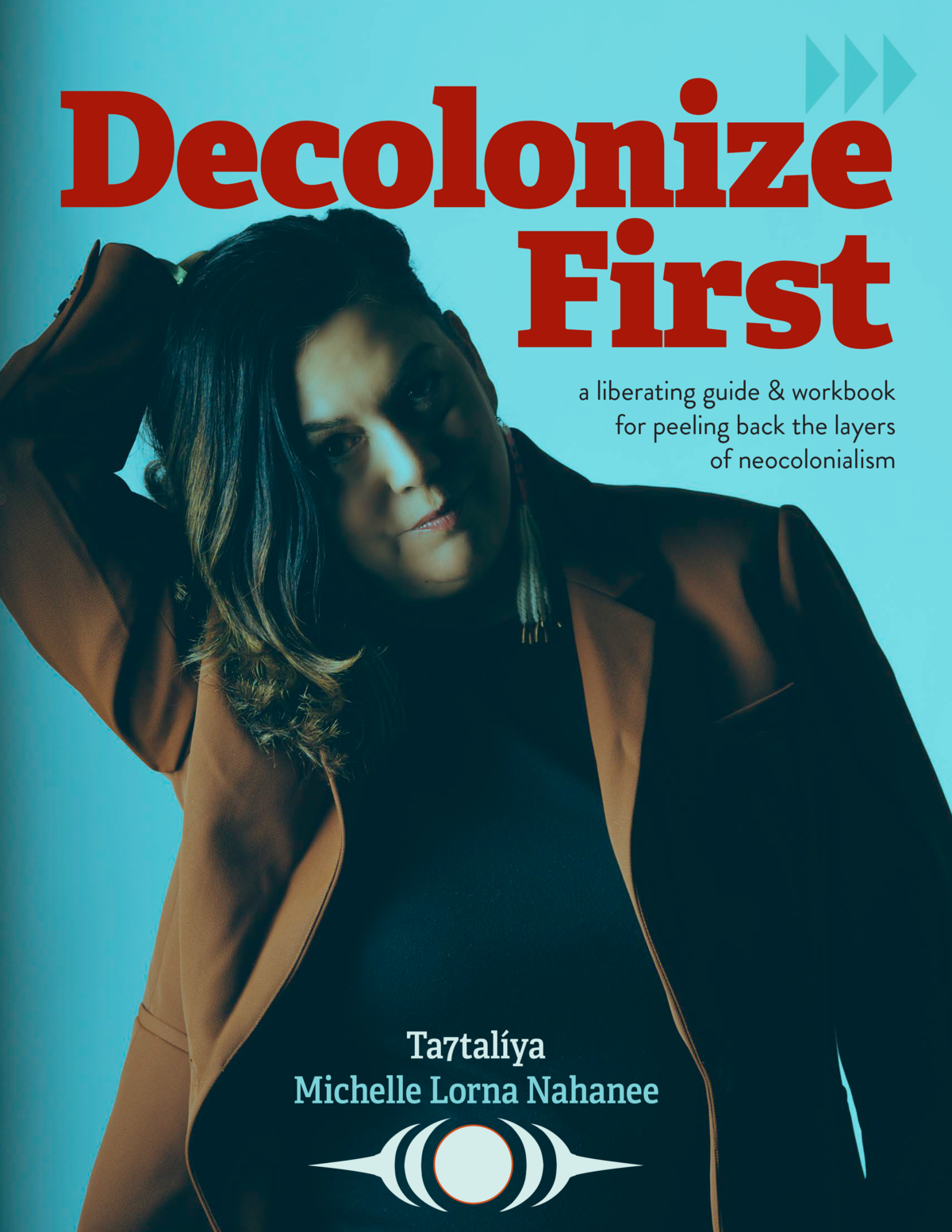
Credit: Decolonize First, Nahanee Creative
Zero Ceiling is and has always been a white-led organization. And yet 1 in 2 young people who we serve are Indigenous. As an organization, we recognize that we have fallen short of meeting the needs of Indigenous youth and community members.
Over the last few years, we have begun working to decolonize our programs, practices, and organization. As a team, we have learned so much from workshops including Decolonizing Practices with Ta7talíya Nahanee, and Working Effectively with Indigenous Peoples with Indigenous Corporate Training Inc.
We are also each on our own personal journey towards decolonizing our thoughts, actions, and interactions. In honor of National Indigenous History Month, we wanted to share some of the ideas, stories, and resources that have helped us decolonize our world views and our practices. Some of the progress we have made was summed up by Jill Patrick in our 2020 Impact Report:
“We recognize that it is an immense privilege to be able to offer land-based programming, when its rightful owners, the Sk̲wx̲wú7mesh and Líl̓wat Nations are excluded from meaningful engagement in and freedoms to care for and use the gifts of the territory they have occupied since time immemorial. In 2020, we began the process of decolonizing our organization so that we can do more to create a more equitable, anti-racist future for Indigenous, Black, and other racialized people. Our staff team has participated in three decolonization trainings, have been updating our internal policies and by-laws to incorporate stronger decolonization practices, and are engaging in community conversations around this topic. We are committed to doing better for all who suffer under the current systems of oppression. We are looking forward to continuing this crucial work in 2021 and beyond.”
Each of the ideas below comes from a member of the Zero Ceiling team. We share them as a starting point, recognizing that everyone is at a different place in their journey towards decolonization. We are not experts. But we hope that by sharing our journey with you, we can empower others to engage more deeply in the critical conversations happening around decolonization, truth, and power in our communities.
Online Resources
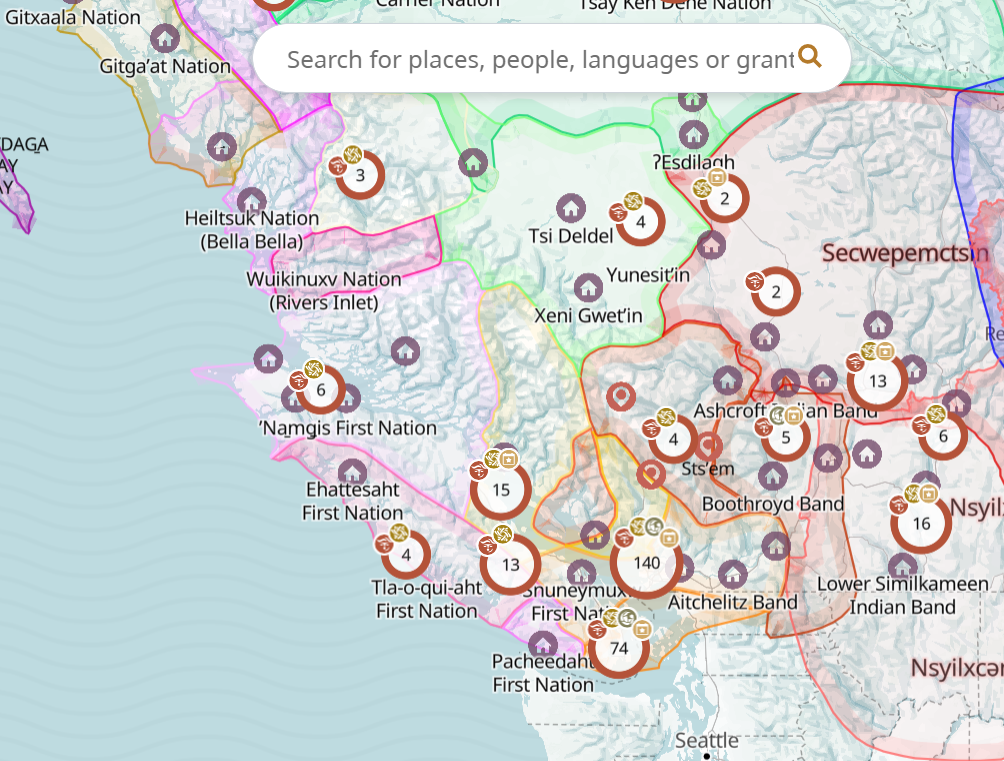
Credit: First Peoples’ Map of BC
First People’s Map of BC
“This is an interactive First Peoples’ Map of BC which has so much information about Indigenous communities, language, place names, arts, and heritage. You can get an interactive app of the map as well.
As you move around BC, you learn so much about each Nation and the important places for each Nation. There is no excuse not to learn, not just about the Nations whose land we each live on, but those we visit as well.”
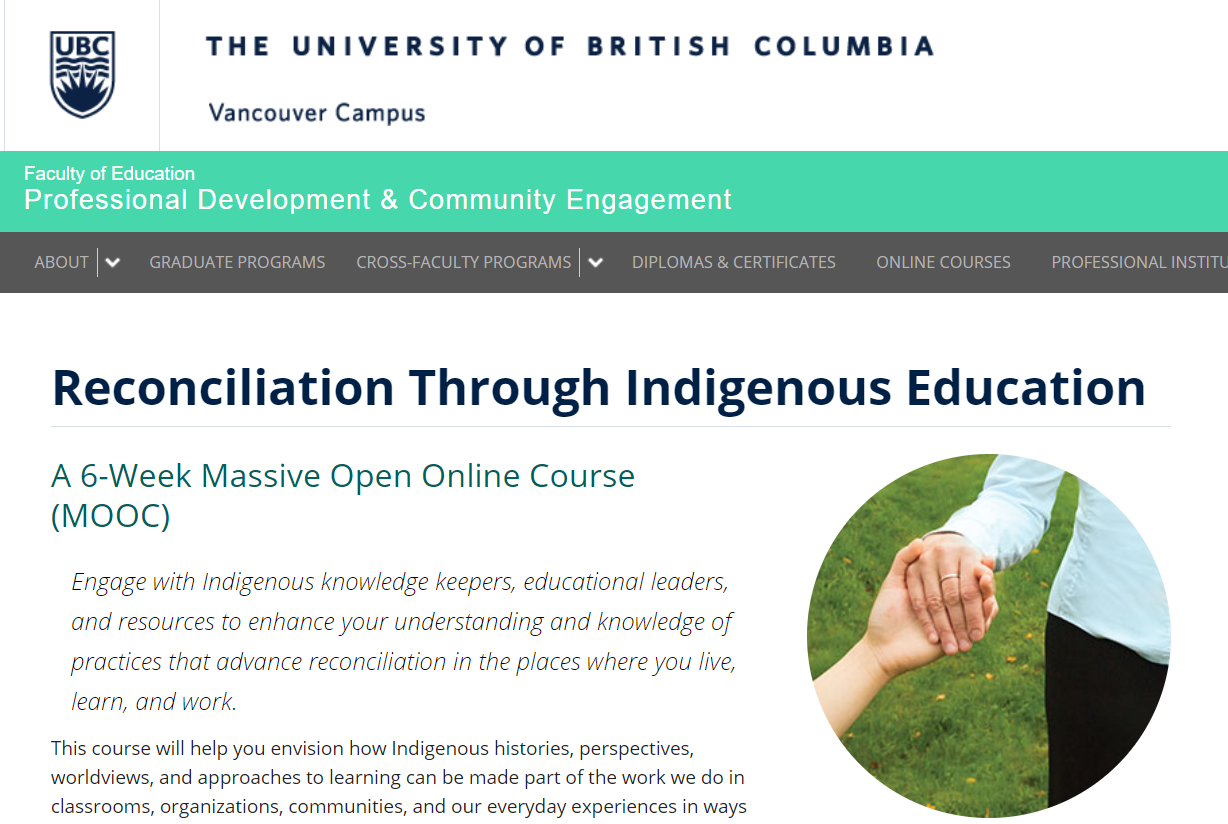
Credit: University of British Columbia
Reconciliation Through Indigenous Education
“This free online course was a pivotal point where I began to understand how culturally I had been educated that everything is linear, and this represented the western worldview. As soon as I was educated on a holistic circular worldview it made more sense and I connected more with this idea.
I was then able to look at the ways I was reinforcing a linear approach across my personal and work life. Once I saw this, I was able to start to change this. Reinforcing a linear approach reinforces colonization.”
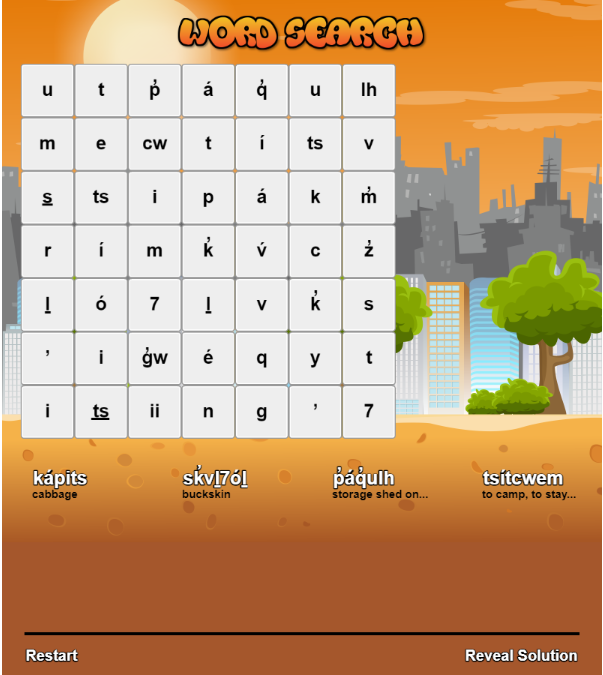
Credit: First Voices
First Voices
“On my own journey towards decolonization, it was recommended to learn the language of the local Nation. The First Voices website is a fantastic portal to help you learn languages. You can search words and hear audio of fluent speakers saying the words.
Becoming familiar with words and sounds and learning how to say, for example, “thank you”, is a really important part of learning and respect. This is the link to Ucwalmícwts, the language of the Lil̓wat7úl, on whose land, Zero Ceiling operates, and First Voices also offers many other languages.”
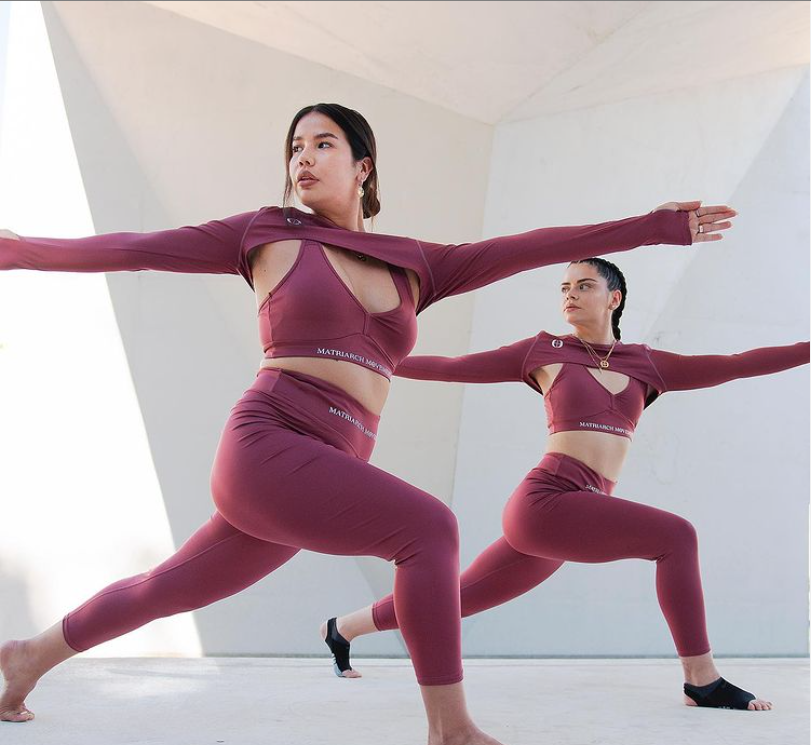
Credit: The Matriarch Movement
The Matriarch Movement
“Indigenous women, medicine, movement, and mindfulness come together in this awesome movement. Their goal is to shift the narrative surrounding Indigenous women into one of power and reclamation by amplifying and supporting their voices.”
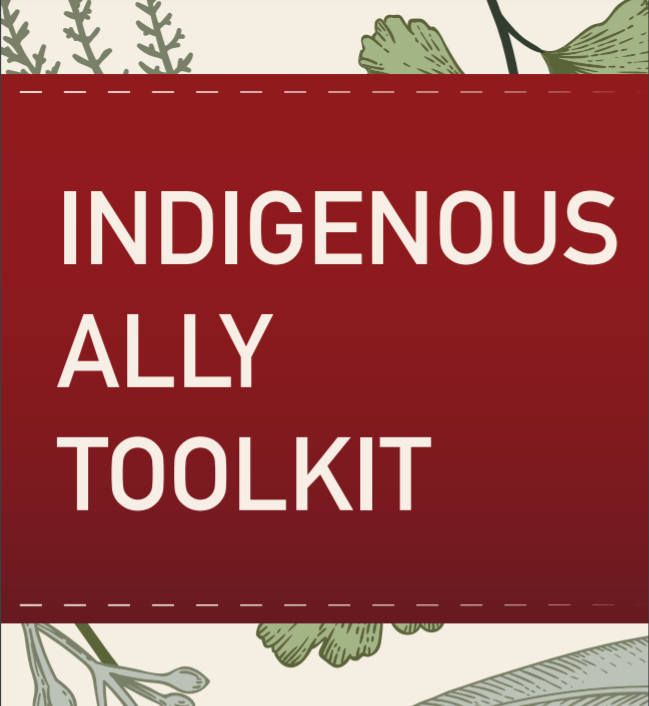
Credit: Montreal Indigenous Community NETWORK
Indigenous Ally Toolkit
“The Indigenous Ally Toolkit from the Montreal Indigenous Community NETWORK offers an accessible way for non-Indigenous people to understand how they can be allies to Indigenous people. It’s helped us understand what is does, and doesn’t, mean to be an ally.
It provides tips on how you can start educating yourself about the history of the Indigenous peoples of Turtle Island, and explains language that’s appropriate to use, or otherwise. Moving beyond education, the toolkit spells out ways you can act as an ally in your personal and professional life.”
Thank you to Court Larabee from the Indigenous Life Sport Academy for pointing us towards this wonderful resource.
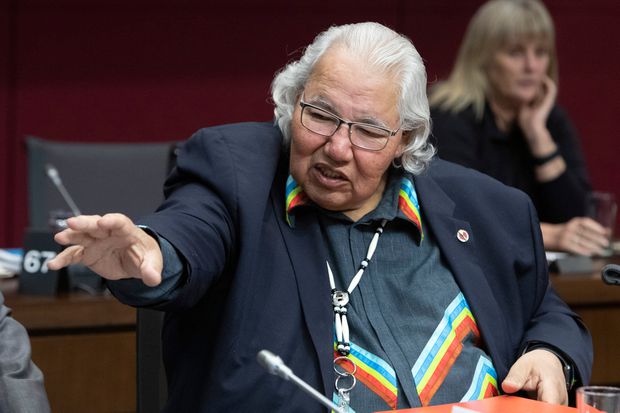
Credit: The Globe and Mail
Senator Murray Sinclair Keynote Speech at Housing Central 2019
“I saw Former Senator Murray Sinclair give the keynote speech at the Housing Central Conference in 2019, and it was transformative for me. He powerfully connected every person in the room to the trauma of the Residential School system, helping us put ourselves in the shoes of the parents, grandparents, and relations of those taken to the schools.”
Senator Sinclair led the Truth and Reconciliation Commission until 2015 and continues to advocate for the TRC Calls to Action to be implemented. At Housing Central, he called on the housing sector to educate ourselves and commit to reconciliation with Indigenous People. Recently, he called for an independent investigation into the burial sites discovered at Residential Schools. You can watch an interview with him on CTV, and many more of his speeches are available online.
Books
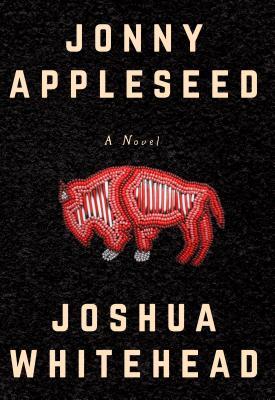
Credit: Joshua Whitehead, Arsenal Pulp Press
Jonny Appleseed
“This incredible multi-award-winning debut novel by Joshua Whitehead tells the story of a young Two-Spirit/Indigiqueer NDN glitter princess as he reflects on his identity and the relationships in his life. It is exciting to see more Indigenous stories in the mainstream, and especially from diverse voices.”

Credit: Richard Wagamese, Penguin Random House
Medicine Walk
“This is a great novel by Richard Wagamese about a young Indigenous boy reconnecting with his dad. Going on a journey to connect to the land and learn about his history. Wagamese really connects you with the characters, bringing you alongside their story feeling like you are there with them.”

Credit: Richard Wagamese, Penguin Random House
Starlight
Starlight is the third novel by Richard Wagamese and was unfinished before he died. “This book taught me so much about connection to the land. I learned what it means to be part of the land, not apart from it. It also contained a quote which has stuck with me and captures what we are trying to achieve at Zero Ceiling:
‘I didn’t change her at all. I just let her find herself in the love I was giving.’ ”
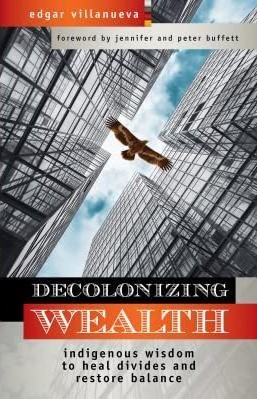
Credit: Edgar Villanueva, Decolonizing Wealth Project
Decolonizing Wealth
“This book by Edgar Villanueva taught me so much about philanthropy and how it upholds colonial values and practices. It helped me consider the consequences of how we request and give out funding in the non-profit sector.
Villanueva applies an Indigenous worldview to the world of philanthropy. He shows us how we can move away from viewing funding relationships as transactional and towards using money for true healing: ‘money as medicine’.”
Our journey towards decolonization continues, and as a team, we learn more every day. We would love to start conversations with you, our supporters, about your journey towards decolonization. What ideas, resources, and stories have helped to change your perspective? What have we missed? How can we do better to decolonize our practices and programs to better serve Indigenous young people in our communities?

